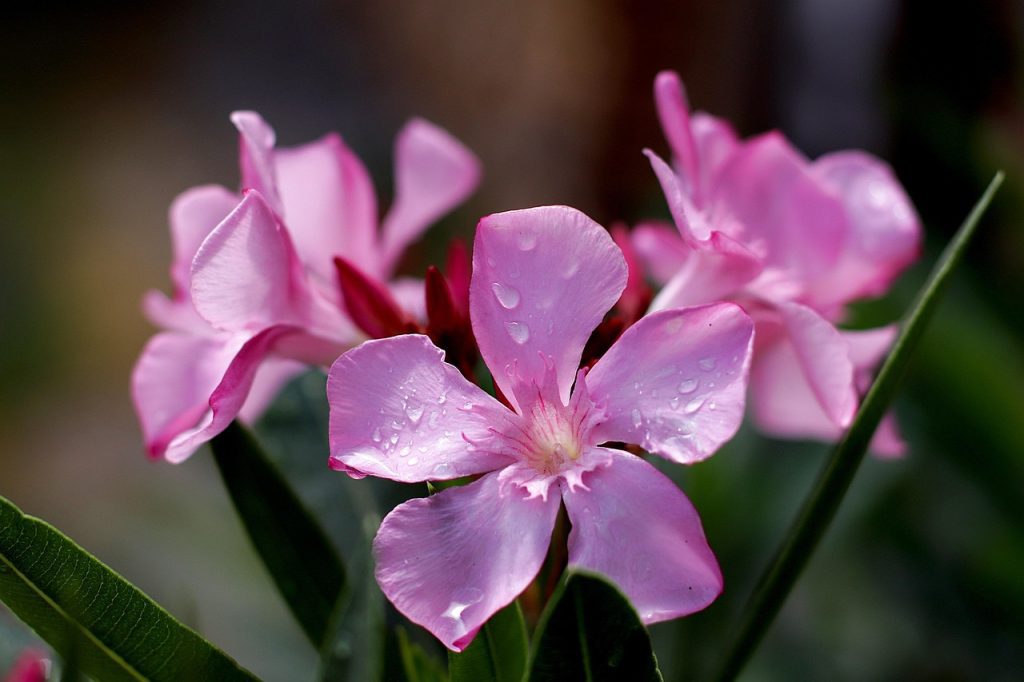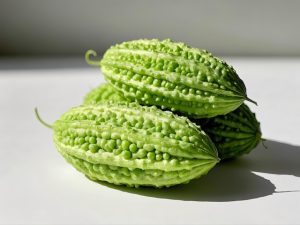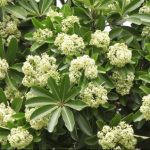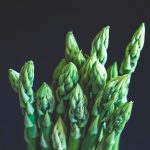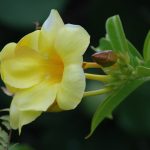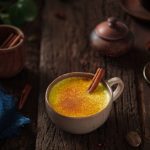Table of Contents
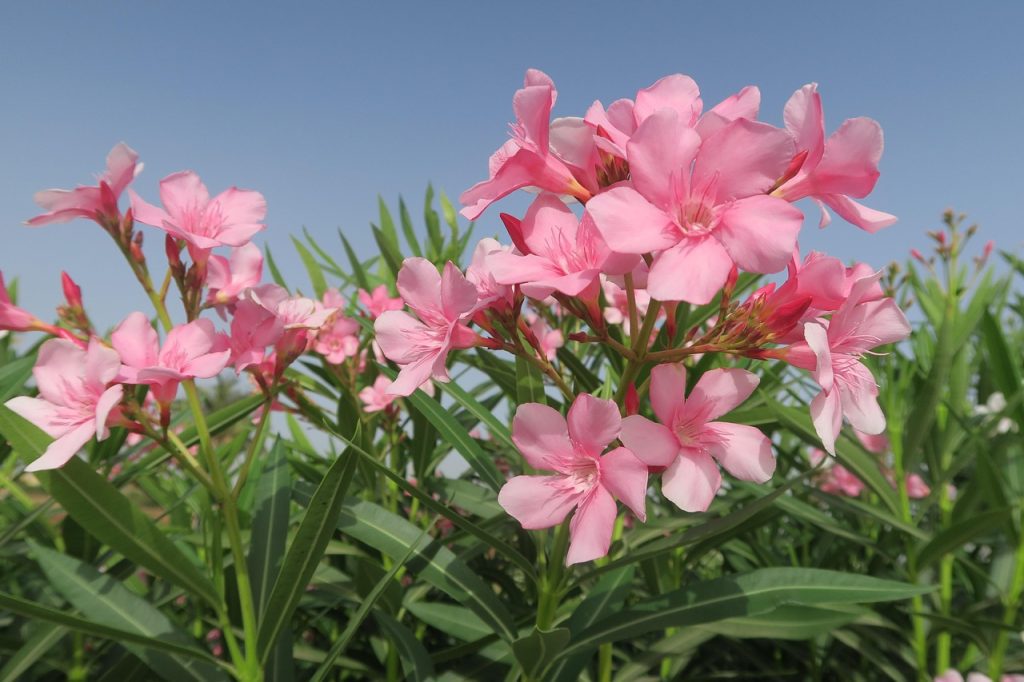
Did you know that a plant as beautiful as Oleander can be both healing and deadly? The Nerium oleander shrub is known for its vibrant flowers—but behind the beauty lies potent chemical compounds that have fascinated herbalists, scientists, and healers for centuries.
This post explores the medicinal uses of Oleander, its therapeutic potential, serious side effects, and the importance of cautious application.
What is Oleander?
Oleander (Nerium oleander) is an evergreen shrub native to the Mediterranean region and Asia. It thrives in tropical and subtropical climates and is popular for ornamental landscaping. Despite its widespread use, every part of the plant—leaves, flowers, stems, and sap—is highly toxic.
Medicinal Uses of Oleander Throughout History
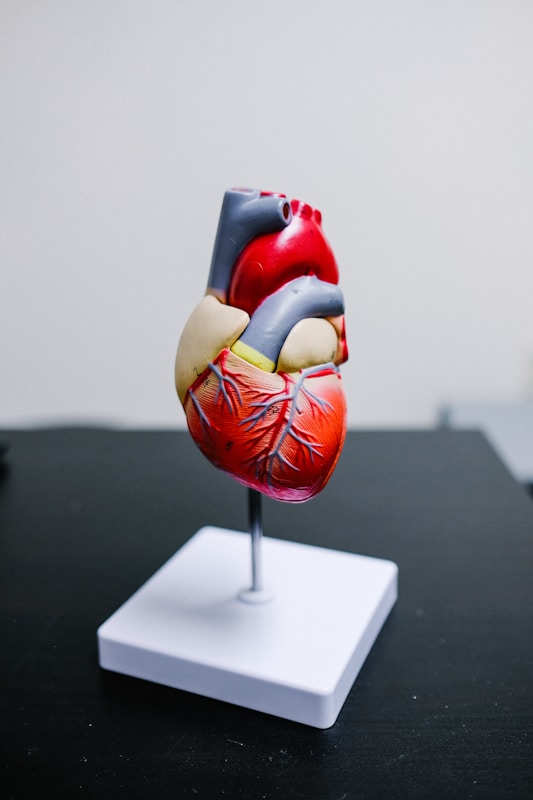
Traditional Remedies
Historically, Oleander was used in folk medicine to treat conditions such as:
- Skin diseases
- Heart disorders
- Asthma
- Malaria
- Epilepsy
- Menstrual issues
How It Works
Oleander contains cardiac glycosides, primarily oleandrin and neriine, which influence the heart and central nervous system. These compounds can have strong pharmacological effects, which is why Oleander has been studied for its potential in modern medicine.
Oleander Extracts and Modern Research
Cancer Research and Oleander
Recent studies have explored Oleander extract (Anvirzel™) as a complementary treatment for cancer. Some in vitro and animal studies suggest that the plant’s compounds may help slow tumor growth and promote apoptosis (cell death) in cancer cells.
Source: NIH National Library of Medicine
Anti-inflammatory and Antiviral Properties
Oleander has also demonstrated possible anti-inflammatory and antiviral activity, leading to experimental uses in:
- Rheumatoid arthritis
- Hepatitis C
- Herpes simplex virus (HSV)
However, these studies are preliminary, and no Oleander-based treatments have been approved by the FDA.
The Risks of Using Oleander Medicinally

Toxicity Warning
Oleander’s therapeutic potential is tightly bound to its toxic nature. Even small doses can cause:
- Nausea and vomiting
- Irregular heart rhythm
- Confusion or dizziness
- Seizures
- Death
Unsafe for Home Remedies
Self-medication with Oleander is highly dangerous. Homemade teas, tinctures, or poultices using this plant can result in poisoning. Children and pets are particularly vulnerable to accidental ingestion.
Safe Use Under Medical Supervision
Oleander-Based Drugs in Clinical Settings
Currently, no Oleander-derived drug is approved for general use. Experimental drugs like Anvirzel™ are only available under strict clinical protocols. If future formulations pass safety trials, they may offer controlled medicinal use under expert care.
Key Takeaways on Oleander in Herbal Medicine
What makes Oleander powerful?
- Contains potent cardiac glycosides
- Shows promise in cancer and antiviral research
- Historically used for skin, heart, and respiratory conditions
H4: Why is Oleander risky?
- Every part of the plant is toxic
- Improper dosage leads to life-threatening symptoms
- Not safe for self-treatment or home use
Related Plants with Safer Alternatives
If you’re looking for natural remedies with a better safety profile, consider:
Foxglove (Digitalis purpurea)
Used in pharmaceuticals like Digoxin for heart failure but still requires prescription.
Milk Thistle (Silybum marianum)
Supports liver health and has low toxicity when used properly.
Calendula (Calendula officinalis)
A gentler herb often used in skin treatments and anti-inflammatory remedies.
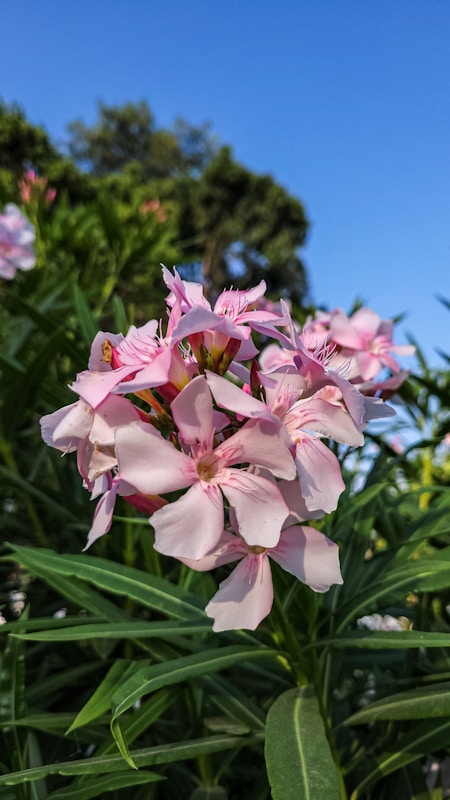
Final Thoughts: Use with Extreme Caution
The medicinal uses of Oleander are complex and controversial. While this powerful plant holds potential in medical research, it’s important to remember that Oleander is not safe for casual or DIY use.
Always consult a licensed healthcare provider or clinical herbalist before considering any plant-based treatment—especially one as dangerous as Oleander.
For professional and science-backed information, refer to:
Call to Action
Are you exploring the healing power of plants? Stay informed and safe. Subscribe to The Planttube Blog for evidence-based insights on medicinal herbs, home remedies, and health-boosting botanicals.
Your health deserves accurate information—never rely on folklore alone.

